Listening to young Europeans
and why their opinion matters about the old continent's future
Welcome to the 89 awesome new readers who joined us in the past week!
If you haven’t subscribed, join 3,208 smart, curious people interested in Changing Greece.
Note: Today marks the 2-year anniversary of the Tempi train crash, the devastating accident that killed 57 people, most of them young, and injured dozens more in Greece. Two years later, we seem to have more questions than answers and a society ripped apart from seeds of doubt, confusion and anger. And yet, everyone seems to have an absolute yet different opinion about what happened, how it happened, and who is to blame (or not to be blamed). Another opinion is certainly not needed from me. But I do have three wishes: First, I hope that the victims and their families find the justice that they so much deserve. Second, I hope that the Greek state does everything in its power to ensure that such a colossal systemic failure never happens again. Third, I hope that the protests planned all over Greece today retain a peaceful character that honors the victims and keep exploitative partisans outside the equation. 🙏
Listening to young Europeans
The 2024 Eurobarometer Youth Survey offers great insights about the views of young people (aged 16-30) across the EU. Some of the highlights from this year include:
The economic situation and creation of jobs was a priority for 31% of young Europeans. For Greece, that was the top concern for 43% of respondents.
Tackling rising prices and the cost of living should be a top priority, say 40% of youngsters across Europe. In Greece that number was 42%.
Young people from Eastern EU member states were more concerned about security and defense than the rest. The EU average of young people thinking this should be a priority was just 21%. Surprisingly, in Greece it was just 14%.
For 42% of young Europeans, social media has become their main news source. Instagram is the top platform among young people (47%), followed by TikTok (39%) and then X (21%). In Greece, 48% of youngsters get their news from social.
Why is this important? Well, Europe is growing old. And the perception of a younger generation that has not lived through the historical dynamics of the 20th century that shaped the modern European era is starting to matter more than ever.
On 1 January 2024, the median age of the EU’s population reached 44.7 years, increasing by 2.2 years over the past decade. To put this simply: half of the people in the EU are today older than ~45 years old.
The aging of population was most pronounced in Greece, Italy, Portugal and Slovakia, with the median increasing by 4.0 years. Germany and Sweden, two EU countries embroiled in deep debates about the effects of migration, had almost no increase.
The demographics of Europe are pretty terrible. We have previously talked about the case of Greece, which is experiencing one of the fastest demographic declines globally.
I often wonder: how will the world look like by the middle of the century?
Europe’s population is expected to decline from 745 million people to about 703 million. That’s close to a 6% decline.
Greece’s population is expected decrease from 10 million to 8.8 million people. That’s about a 12% decline — twice the rate of Europe’s average.
Pretty crazy, if you ask me.

A 25 year old Greek youngster today will be 50 year old middle aged man or woman in 2050. He or she will live in a geriatric society with an inverted demographic pyramid (at best). This means more older people (who will depend on larger healthcare and pension systems) than younger ones (who will need to work and pay higher social contributions to balance the scales).

How will today’s young Greeks / Europeans shape our society by 2050? And will the new middle-agers be better or worse off than their current counterparts?
The future is hard to predict, but their concerns today might give us a small glimpse into what tomorrow will bring and how they will help shape it. And if Bryan Johnson has his way, many of us might still be around by then, so don’t think we are off the hook — it might still affect us too!
One thing is for sure: the Old Continent will be, quite literally, a very old continent by the time our calendars hit 2050. Will we be ready for it?
🏭 Economy & Business
Foreign direct investments in Greece had their second best year last year
Greek stocks have had some great few months of returns since December
Monthly global economy policy uncertainty index at highest level since 1996
Mitsotakis pushes idea of joint EU borrowing for group’s defense spending
Greek shipowners top global list of new tanker orders (113 of 435) for 2024
Luxury house market continues to boom, led by the ‘Athens Riviera’
Hotel investments in Athens are experiencing an absolute frenzy
🤖 Tech & Startups
JOIST in Larissa is turning into top hub of innovation in Thessalia region
Achira (drug discovery) raised a whopping $31.5M seed-round
Katerina Stroponiati has a unique investment thesis: older entrepreneurs
Thanos Papadimitriou talks about his path in tech and entrepreneurship
University of Athens sent a science team to Santorini to track rockfalls
FORTH’s new Science & Cultural Center inaugurated in Heraklion, Crete
Crypto as a strategic opportunity for Greece? Here is an argument for it.
🙌 Celebrating Greek wins
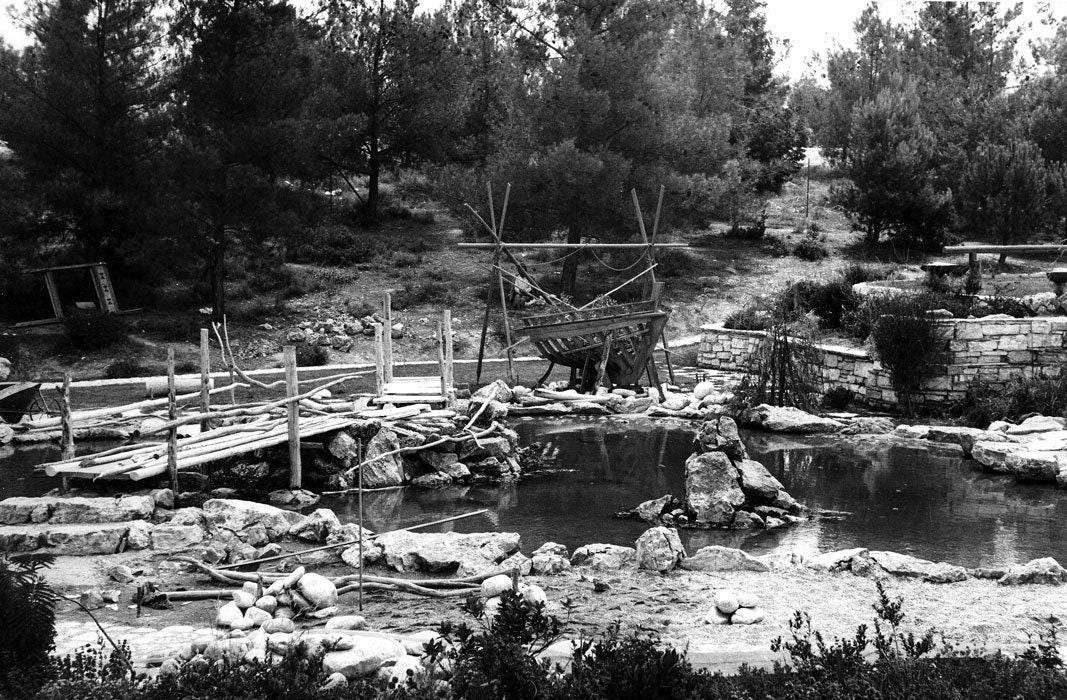
Pikionis’ mythical playground in Filothei is close to finally seeing a facelift
Four Greek schools received European Innovative Teaching Awards
Emmanouil Karalis broke another national record in pole vaulting (6.01m)
Plaka residents fighting hard against the airbnbification of the neighborhood
Florina remains as beautiful, alive and mysterious as ever
📊 Chart of the week: Crime reporting in Greece tops EU
Across EU countries, the highest shares of people reporting crime, violence or vandalism in their neighborhood were recorded in Greece — by a wide margin.
This is true both for people at risk of poverty and those that are not, which means that crime occurrence (or at least, perception of it) permeates across all society levels.
I wonder what the Greek government makes of it, since a key part of its pre-electoral promises was that of security. Certainly not a statistic to be proud of.
That’s it for today! If you enjoyed today’s newsletter, please let me know with a like or reply. And if you value the content shared here every week, consider pledging your support. Thanks!
Find me on X or Bluesky for bite-sized opinions.
Until next time!




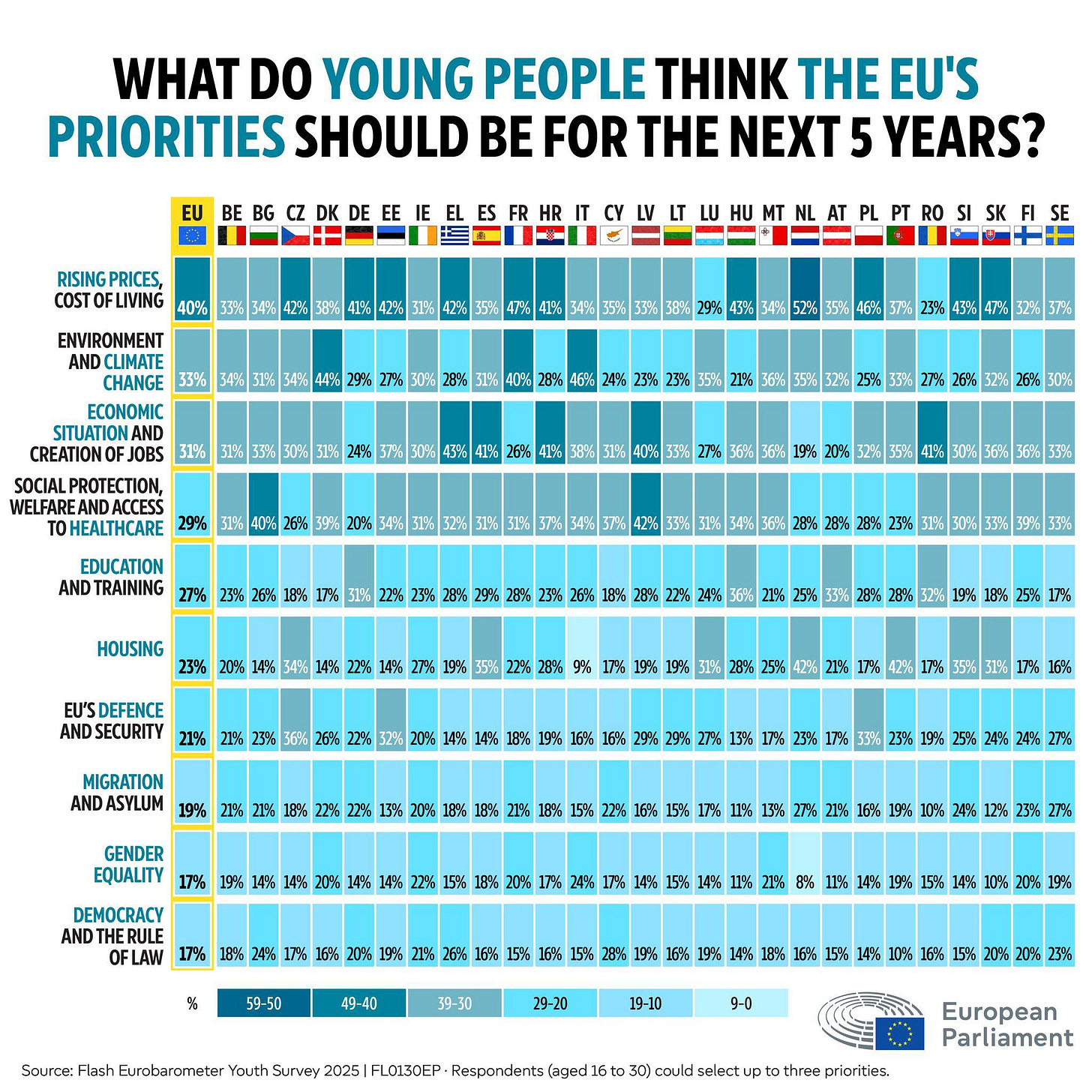
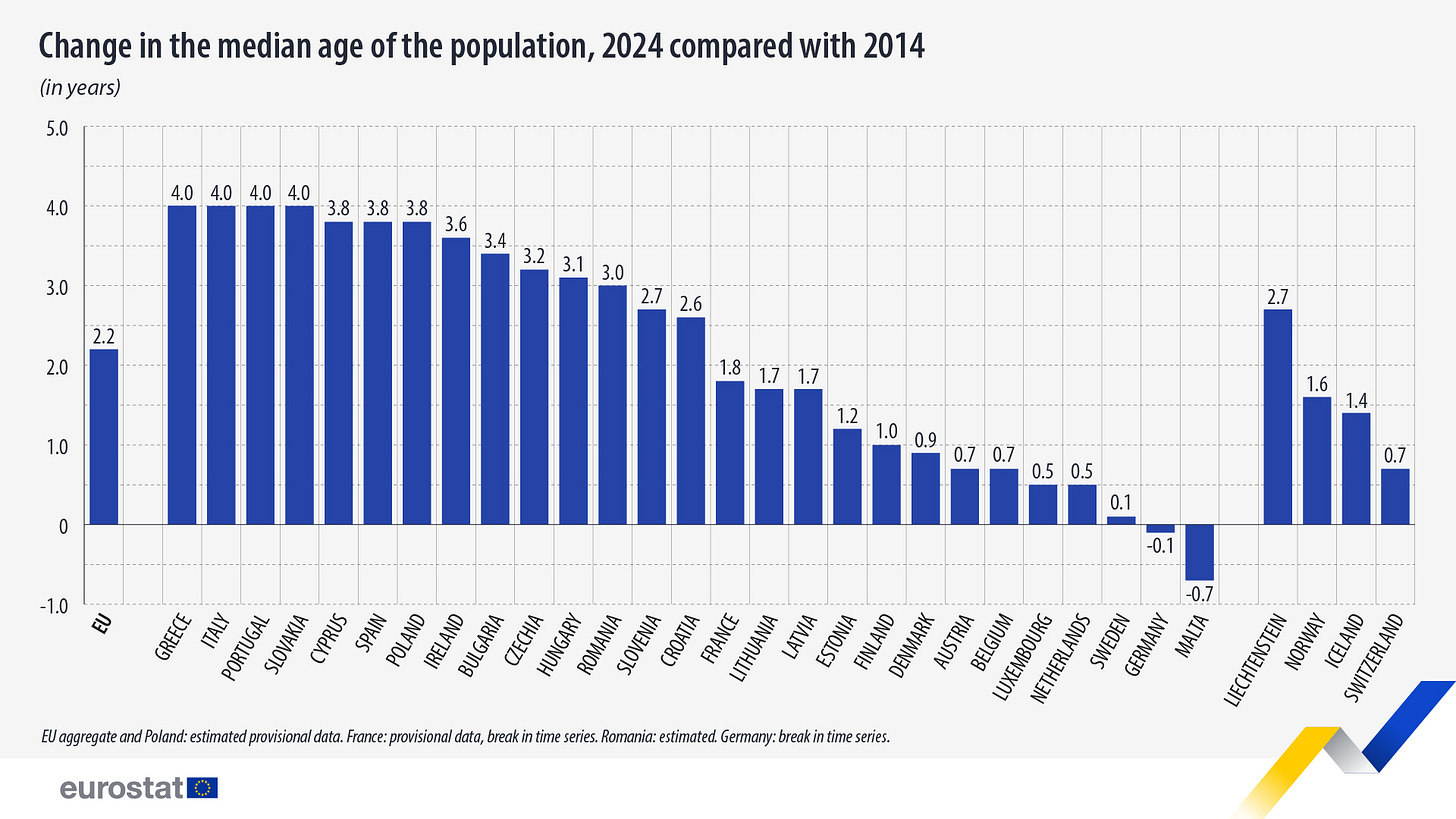
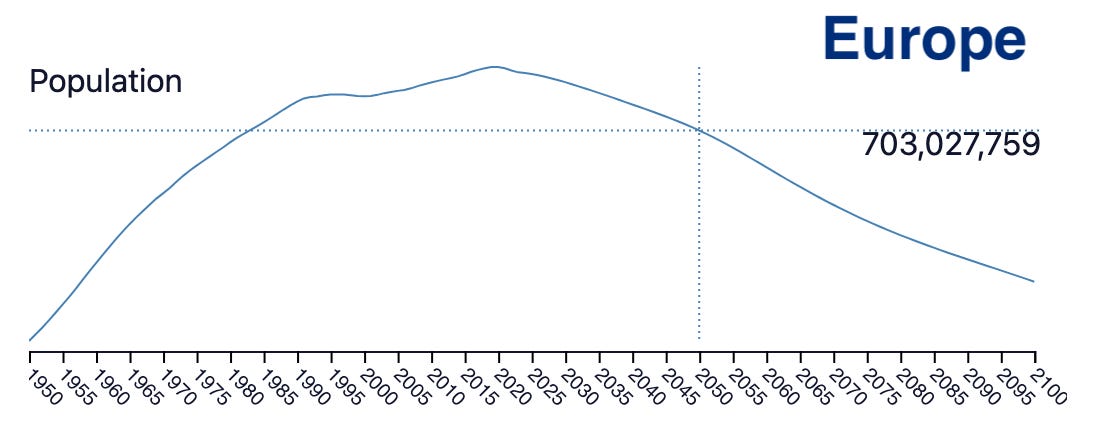


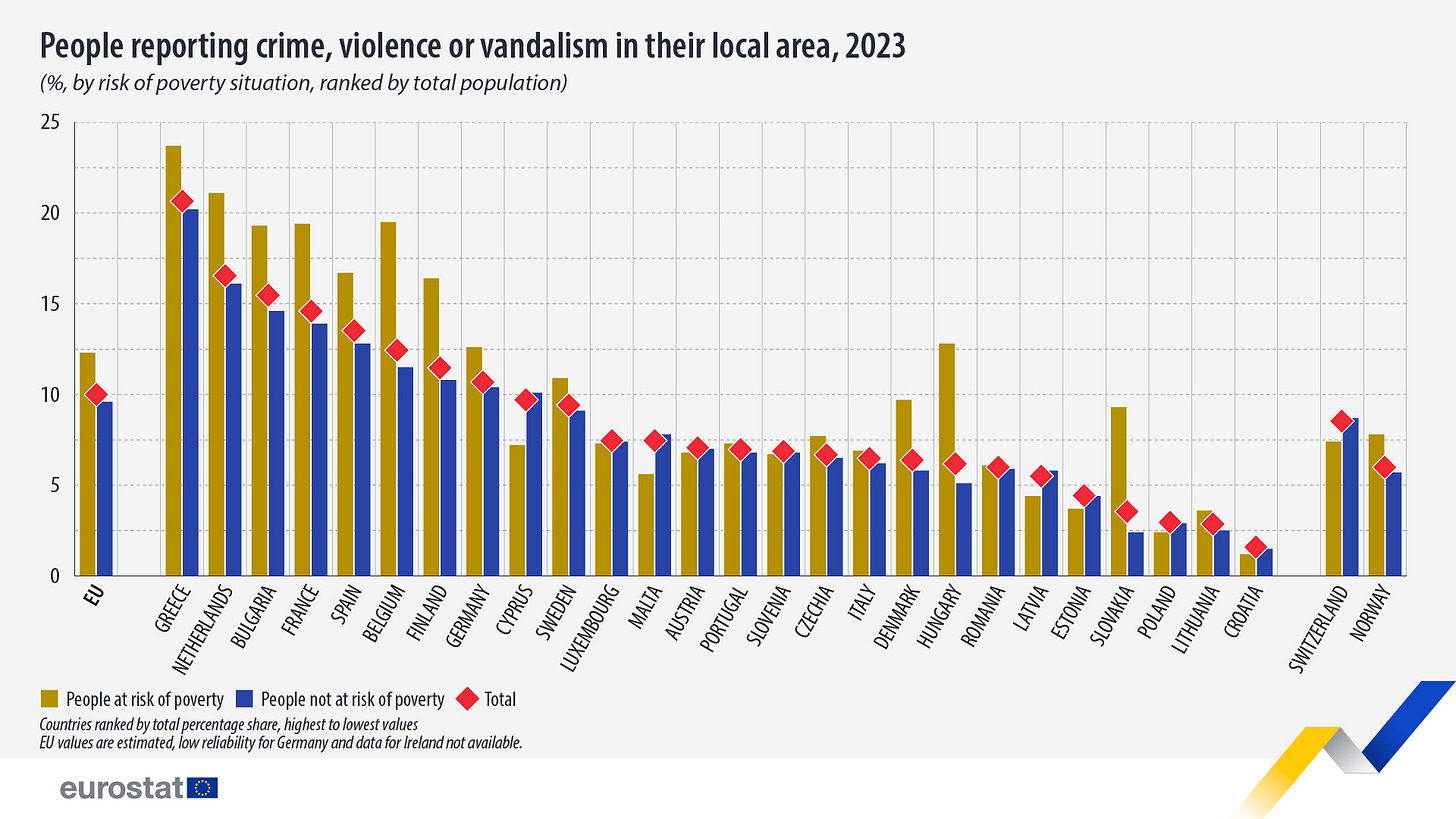
Thank you for another very interesting post.
Democracy at the bottom of young people's priority list? To me that seems worth talking about.
When the youth rank "democracy and rule of law" dead last among their concerns, something went wrong in our collective priorities. Economic concerns top the list, which makes sense—people worry about affording rent next month before abstract governance concepts. Fair enough.
You know, in North Korea, they've solved the cost-of-living crisis quite efficiently. Everyone gets housing! Everyone has a job! The state ensures it! The trade-off, of course, being that citizens function essentially as state property, being told what to do and when. Hint: it's not fun. Our younger generations (mine included) treat democratic foundations like oxygen—unnoticed until suddenly unavailable.
EU citizens retain actual electoral power. Do we exercise these rights effectively? Not really. Many prefer crushing candy or performative Twitter outrage over studying policy positions and tracking governance outcomes objectively.
Reading legislation demands effort in the same way reading financial statements does. Both activities look boring but contain essential signal. Protesting and scapegoating provide immediate emotional returns but questionable long-term value. We should all strive to make politics more transparent and easy to digest. Not have tribes to fanatically support in big rallies.
That might be the single most effective way to solve most of those issues. If you are aware of what politicians do (not say) and use your vote objectively, not fanatically, there's no doubt that there will be long-term improvement. The system we have is good, the usage is flawed. The alternative is much worse.
When democracies slide toward autocracy (Hungary offers a case study; America shows early indicators), citizen rights diminish rapidly. Ask Russian dissidents or Turkish opposition figures how it played out for them.
Climate change ranking second is great. I am also concerned that collective action will happen only after catastrophic events make meaningful intervention impossible. That would be a scenario we don't want to see, we should do more about that.
Noteworthy to the union are programs like Erasmus+ that influence education systems across its members, by introducing non-formal education methods and ways to enhance the youth work field. Many young people have grown with Erasmus+ nowadays and plays significant role (apart from the opportunities it provides) in helping young people adopt a European mindset, like the one older generations have when Europe initially started.